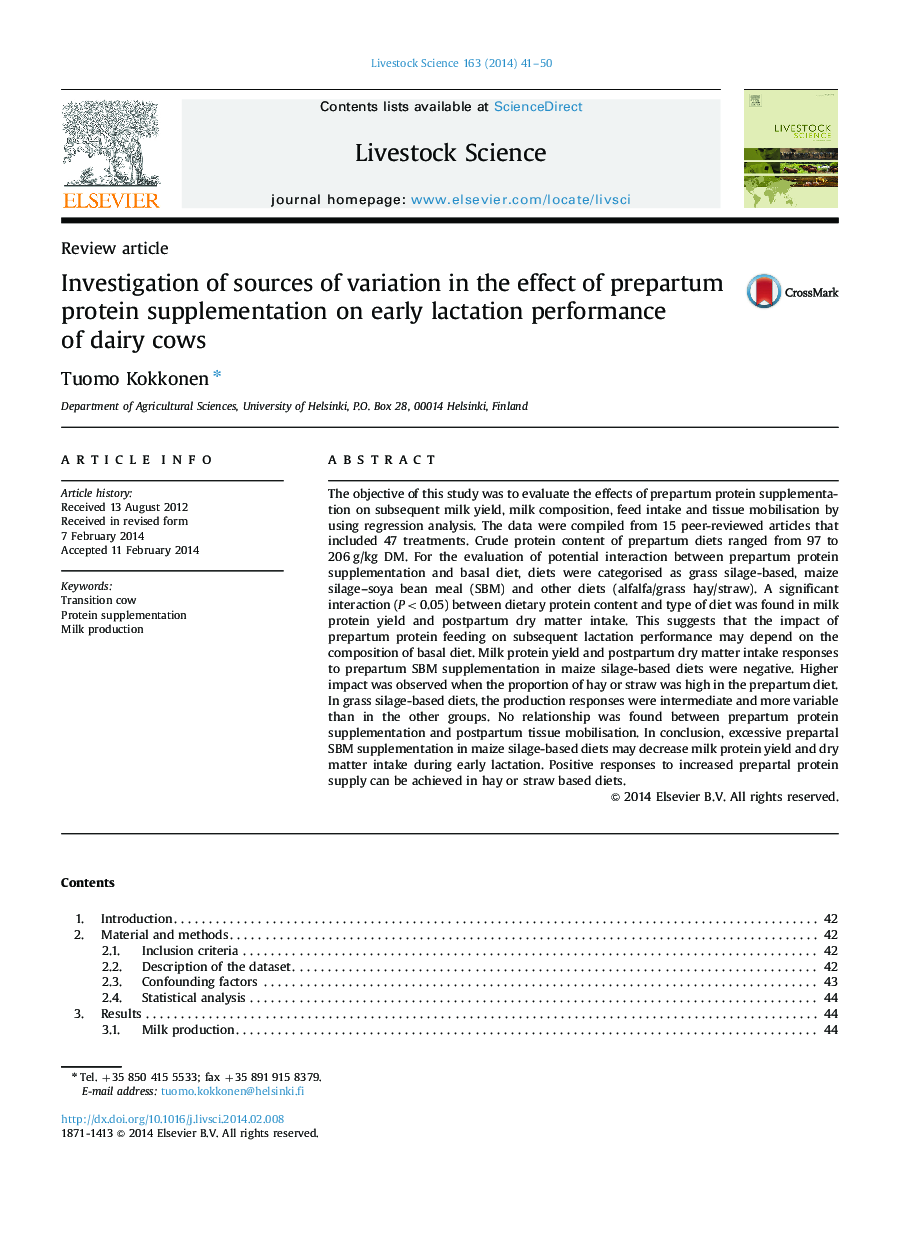| Article ID | Journal | Published Year | Pages | File Type |
|---|---|---|---|---|
| 2447211 | Livestock Science | 2014 | 10 Pages |
The objective of this study was to evaluate the effects of prepartum protein supplementation on subsequent milk yield, milk composition, feed intake and tissue mobilisation by using regression analysis. The data were compiled from 15 peer-reviewed articles that included 47 treatments. Crude protein content of prepartum diets ranged from 97 to 206 g/kg DM. For the evaluation of potential interaction between prepartum protein supplementation and basal diet, diets were categorised as grass silage-based, maize silage–soya bean meal (SBM) and other diets (alfalfa/grass hay/straw). A significant interaction (P<0.05) between dietary protein content and type of diet was found in milk protein yield and postpartum dry matter intake. This suggests that the impact of prepartum protein feeding on subsequent lactation performance may depend on the composition of basal diet. Milk protein yield and postpartum dry matter intake responses to prepartum SBM supplementation in maize silage-based diets were negative. Higher impact was observed when the proportion of hay or straw was high in the prepartum diet. In grass silage-based diets, the production responses were intermediate and more variable than in the other groups. No relationship was found between prepartum protein supplementation and postpartum tissue mobilisation. In conclusion, excessive prepartal SBM supplementation in maize silage-based diets may decrease milk protein yield and dry matter intake during early lactation. Positive responses to increased prepartal protein supply can be achieved in hay or straw based diets.
